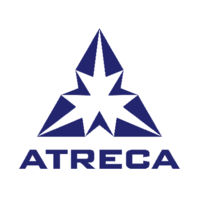预约演示
更新于:2025-05-07
APN-497444
更新于:2025-05-07
概要
基本信息
原研机构 |
在研机构 |
非在研机构- |
最高研发阶段临床前 |
首次获批日期- |
最高研发阶段(中国)- |
特殊审评- |
结构/序列
使用我们的ADC技术数据为新药研发加速。
登录
或

关联
100 项与 APN-497444 相关的临床结果
登录后查看更多信息
100 项与 APN-497444 相关的转化医学
登录后查看更多信息
100 项与 APN-497444 相关的专利(医药)
登录后查看更多信息
14
项与 APN-497444 相关的新闻(医药)2024-07-08
·精准药物
PREFACE
前言
2010年成立于美国加州的Atreca,手握能够探测B细胞反应,以鉴定新的抗体和与它们结合的靶点的药物平台,得益于该平台,Atreca成立的前十年风头无两,并且受到了GSK、强生、诺华、辉瑞、赛诺菲等MNC的青睐。
风光的背后自然离不开投资机构的力推,Atreca自成立以来共完成6轮融资,总金额超过2.2亿美元,并在2019年成功登陆美股。
但大部分的biotech都逃不过“宿命”。有数据表明,在2010年-2018年上市的332家biotech中,截至2022年3月,退市率已经达到36.1%,并且可以推断的是,这个数字会随着时间的流逝继续增长。
Atreca同样没逃过这个“宿命”,在放弃核心管线、大幅度裁员、转战ADC后,Atreca并未完成自我救赎,最终迈向了“死亡之谷”。
01
脆弱的biotech
2019年上市的时候,Atreca并未有产品进入临床阶段,更多的是依赖技术平台已经达成的合作而衍生出来的故事来作为支撑。因而对于Atreca来说,尽快把核心产品推入临床阶段以证明技术平台的可行性是头等大事。
Atreca的核心产品为一款靶向RNP(核糖核蛋白)的单抗,研发代码为ATRC-101,通过Driver
Antigen Engagement机理,允许药物重塑肿瘤微环境,从而有利于增强T细胞反应。
Driver
Antigen Engagement机理来源:Atreca招股书
根据Atreca官网公开信息显示,ATRC-101在2020年2月完成了临床1b期试验的首例患者给药。在核心产品进入临床阶段后,Atreca又陆续与百济神州、IGM
Biosciences、Xencor等诸多公司基于技术平台达成了合作。在自研与对外合作上双双取得进展的情况下,Atreca似乎进入了良性循环的发展道路。
但创新药研发哪有一帆风顺的说法,Atreca很快便遇到了挫折。2021年7月末,Atreca公布了ATRC-101临床1b期试验的初步数据,当日收盘股价下跌40%,市场普遍认为数据不及预期。
而后在2023年ASCO上,Atreca口头报告了临床1b期试验结果,结果表明,ATRC-101无论是单药还是与帕博利珠单抗联合用药都具有良好的耐受性和抗肿瘤活性,中期数据结果支持后续试验的继续入组,但可以预感到ORR将会很低,很难在实体瘤上有所突破。
不久后,2023年8月10日,Atreca在公布Q2业绩时同时宣布将放弃核心管线ATRC-101的研发,并且裁员40%。
而陷入困境的Atreca并未完成自救,最终在2024年6月黯然退场。拉长时间来看,上市似乎是Atreca的最高光时刻。
Atreca落寞,是大多biotech无法逃脱的“宿命”。临床数据不够好的核心管线、无法证明可行性的核心技术平台,在整个创新药长链中,biotech似乎是最脆弱的群体,稍有不慎便是万丈深渊。
02
转型ADC,也很难自救
寒冬之下,逐渐枯竭的现金流会加速biotech的陨落。这一点,在Atreca的“死亡”中表现的淋漓尽致。
Atreca在宣布放弃ATRC-101后续研发的同时,表示后续将全力开发靶向新型肿瘤特异性聚糖Glycan的ADC药物APN-497444。
而切换研发方向,对于现金流本就捉襟见肘的Atreca无疑已经是殊死一搏。
根据Atreca
2023年Q2和Q3财报显示,季度末的现金及等价物分别为0.385亿美元和0.214亿美元,而两个季度的研发费用为0.129亿美元和0.104亿美元,仅从研发费用来看,Atreca已经难以支持公司正常运营。
但Atreca此举在ADC大热的背景下意图也是尤为明确,一方面,APN-497444在临床前数据支撑下,有License-out的潜力,如若成功,Atreca有希望可以通过近期的首付款以及后续更多的潜在合作可能盘活现金流,另一方面,Atreca或许可以依靠转型ADC
biotech来讲新的故事,从而在投资人手上拿到新钱,维持公司转型运营…
想象是美好的,但现实永远是最残酷的。从抗体药biotech转型为ADC biotech并非易事,ADC药物在药化设计、生物分析等环节远比传统抗体类药物药难得多,因而需要在团队建设以及研发上进行更多的资金投入。
并且需要注意的是,APN-497444并非Atreca首款推至台面的ADC药物,在这之前,Atreca还有一款ADC药物ATRC-301,此前由于安全性问题已经折戟临床前研究。
换言之便是,Atreca在ADC药物的开发上,并没有太多的成功经验,转型后的Atreca很难讲好故事,拿到快钱的希望渺茫。
无法说服投资者,也无法吸引其他biotech公司进行合作,摆在Atreca面前的路便只剩下了一条,就是破产清算。
声明:发表/转载本文仅仅是出于传播信息的需要,并不意味着代表本公众号观点或证实其内容的真实性。据此内容作出的任何判断,后果自负。若有侵权,告知必删!
长按关注本公众号
粉丝群/投稿/授权/广告等
请联系公众号助手
觉得本文好看,请点这里↓
抗体药物偶联物ASCO会议临床结果
2024-05-20
BOTHELL, Wash.--(BUSINESS WIRE)-- Immunome, Inc. (Nasdaq: IMNM), a biotechnology company focused on developing first-in-class and best-in-class targeted cancer therapies, today announced the completion of its purchase of antibodies and related assets from Atreca, Inc. Under the terms of the agreement, Immunome paid Atreca $5.5 million upfront, and Atreca will be eligible for up to $7.0 million in clinical development milestones. Immunome received the rights to 28 antibodies as well as certain materials.
“Novel and underexplored targets are central to Immunome’s pipeline strategy,” said Jack Higgins, PhD, Chief Scientific Officer. “The antibodies acquired from Atreca add to our ADC toolbox, complementing our existing discovery programs pursuing undisclosed targets.”
Added Clay Siegall, PhD, President and Chief Executive Officer, “Immunome intends to further expand its ADC portfolio through cost-effective business development, rigorous discovery efforts, and disciplined development. We believe this purchase accelerates our efforts to bring innovative therapies to cancer patients.”
About Immunome, Inc.
Immunome is a biotechnology company dedicated to developing first-in-class and best-in-class targeted cancer therapies. Our portfolio pursues each target with a modality appropriate to its biology, including small molecules, ADCs, RLTs and immunotherapies. We believe that pursuing underexplored targets with appropriate drug modalities leads to transformative therapies. Our proprietary memory B cell hybridoma technology allows for the rapid screening and functional characterization of novel antibodies and targets.
For more information, visit or follow us on Twitter and LinkedIn.
Cautionary Statement Regarding Forward-Looking Statements
Certain statements contained in this communication regarding matters that are not historical facts, are forward-looking statements within the meaning of Section 21E of the Securities and Exchange Act of 1934, as amended, and the Private Securities Litigation Reform Act of 1995 (the “PSLRA”). We use words such as “will,” “intends,” “believe,” and similar expressions to identify these forward-looking statements that are intended to be covered by the safe-harbor provisions of the PSLRA. These forward-looking statements include, but are not limited to, statements regarding Immunome’s expectation to expand its portfolio and toolbox, enhance its development capabilities and drive strategic business initiatives; Immunome’s ability to integrate the assets acquired from Atreca; Immunome’s expectation about management’s performance; and other statements regarding management’s intentions, plans, beliefs, expectations or forecasts for the future. No forward-looking statement can be guaranteed, and actual results may differ materially from those projected. Such forward-looking statements are based on Immunome’s expectations and involve risks and uncertainties; consequently, actual results may differ materially from those expressed or implied in the statements due to a number of factors. These factors include, but are not limited to, the risk that Immunome will not be able to realize the benefits of its strategic transactions, Immunome’s ability to grow and successfully execute on its business plan, including the development and commercialization of its pipeline and the expansion of its toolbox; changes in the applicable laws or regulations; the possibility that Immunome may be adversely affected by other economic, market, business, and/or competitive factors; the risk that regulatory approvals for Immunome’s programs and product candidates are not obtained, are delayed or are subject to unanticipated conditions; the risk that pre-clinical data may not be predictive of clinical data; the risk that interim results of a clinical trial do not necessarily predict final results; potential delays in the commencement, enrollment and completion of clinical trials and the reporting of data therefrom; the risk that our product and development candidates fail to achieve their intended endpoints; the complexity of numerous regulatory and legal requirements that Immunome needs to comply with to operate its business; the reliance on Immunome’s management; the prior experience and successes of the Immunome’s management team not being indicative of any future success; uncertainties related to Immunome’s capital requirements and Immunome’s expected cash runway; the failure to obtain, adequately protect, maintain or enforce Immunome’s intellectual property rights; and other risks and uncertainties indicated from time to time described in Immunome’s Annual Report on Form 10-K for the year ended December 31, 2023, filed with the SEC on March 28, 2024, in Immunome’s Quarterly Report on Form 10-Q for the quarter ended March 31, 2024, filed with the SEC on May 14, 2024, and in Immunome’s other filings with the SEC. Immunome cautions that the foregoing list of factors is not exclusive and not to place undue reliance upon any forward-looking statements which speak only as of the date made. Moreover, Immunome operates in a very competitive and rapidly changing environment. New risks emerge from time to time. Except as required by law, Immunome does not undertake any obligation to update publicly any forward-looking statements for any reason after the date of this press release to conform these statements to actual results or to changes in their expectations.
免疫疗法并购
2024-02-06
Should AL102 live up to its hype, Ayala Pharmaceuticals is in line for development and commercial milestones totaling $37.5 million.
Barely two months after SpringWorks Therapeutics secured the first-ever FDA approval for a drug to treat ultra-rare desmoid tumors, Immunome has bagged the rights to a phase 3 therapy it claims could be more effective.
The Pennsylvania-based biotech is paying $20 million in upfront cash and $30 million in common stock to Ayala Pharmaceuticals to secure the phase 3 oral gamma secretase inhibitor AL102. The deal also covers an injectable gamma secretase inhibitor called AL101 that’s in a phase 2 trial for adenoid cystic carcinoma.
Should AL102 live up to the hype, Ayala is in line for development and commercial milestones totaling $37.5 million.
In this morning’s press release, Immunome claimed that “data from clinical trials have shown AL102 may be more effective in treating desmoid tumors” than SpringWorks’ own gamma secretase inhibitor Ogsiveo, which secured FDA approval at the end of November 2023.
Desmoid tumors, which are diagnosed in around 1,650 people in the U.S. each year, are marked by noncancerous soft tissue growths that often cause severe pain and disfigurement. To secure the approval of Ogsiveo, SpringWorks drew on phase 3 data that showed a confirmed objective response rate of 41% for patients taking the drug compared to 8% for those who received placebo.
There have been no head-to-head studies of the two drugs. In today’s release, Immunome claimed that among evaluable patients in a phase 2 trial who received a 1.2-mg dose of AL102, the objective response rate so far has been 75%. This is the same dose being tested in Ayala’s ongoing phase 3 study.
“We are especially optimistic about the rapidity and depth of the tumor responses observed in the phase 2 portion of RINGSIDE,” Immunome’s CEO Clay Siegall, Ph.D., said in the release. “AL102 will complement our existing portfolio of targeted cancer agents that are approaching phase 1 trials.”
“As we complete the work required to advance AL102 to NDA submission, our goal is to bring clinical benefit to an underserved patient population while generating substantial value for stockholders,” Siegall added. “We also plan to investigate other populations of cancer patients that could benefit from treatment with AL102.”
Immunome gave itself a late Christmas present in the form of a slate of antibodies and related assets from Atreca, which it bought for $5.5 million upfront. The December 2023 deal included APN-497444, which was Atreca’s lead antibody-drug conjugate program in early development for gastrointestinal cancers.

临床2期临床3期上市批准抗体药物偶联物并购
100 项与 APN-497444 相关的药物交易
登录后查看更多信息
研发状态
10 条进展最快的记录, 后查看更多信息
登录
| 适应症 | 最高研发状态 | 国家/地区 | 公司 | 日期 |
|---|---|---|---|---|
| 肿瘤 | 临床前 | 美国 | - |
登录后查看更多信息
临床结果
临床结果
适应症
分期
评价
查看全部结果
| 研究 | 分期 | 人群特征 | 评价人数 | 分组 | 结果 | 评价 | 发布日期 |
|---|
No Data | |||||||
登录后查看更多信息
转化医学
使用我们的转化医学数据加速您的研究。
登录
或

药物交易
使用我们的药物交易数据加速您的研究。
登录
或

核心专利
使用我们的核心专利数据促进您的研究。
登录
或

临床分析
紧跟全球注册中心的最新临床试验。
登录
或

批准
利用最新的监管批准信息加速您的研究。
登录
或

生物类似药
生物类似药在不同国家/地区的竞争态势。请注意临床1/2期并入临床2期,临床2/3期并入临床3期
登录
或

特殊审评
只需点击几下即可了解关键药物信息。
登录
或

生物医药百科问答
全新生物医药AI Agent 覆盖科研全链路,让突破性发现快人一步
立即开始免费试用!
智慧芽新药情报库是智慧芽专为生命科学人士构建的基于AI的创新药情报平台,助您全方位提升您的研发与决策效率。
立即开始数据试用!
智慧芽新药库数据也通过智慧芽数据服务平台,以API或者数据包形式对外开放,助您更加充分利用智慧芽新药情报信息。
生物序列数据库
生物药研发创新
免费使用
化学结构数据库
小分子化药研发创新
免费使用

